A Day In The Life Of A New York Stock Exchange Floor Broker
A floor broker executes orders for their clients. They do not execute on their own accounts.

A floor broker provides information for their clients. They are the 'eyes and ears' for their clients' stocks.
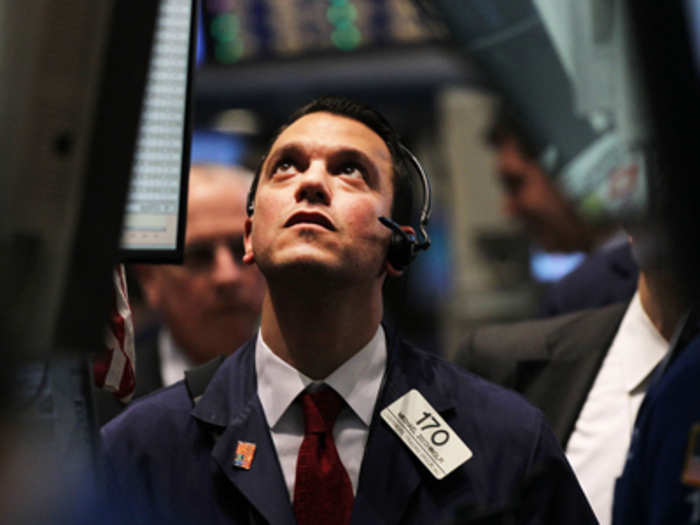
A floor broker's clients can include banks, broker-dealers, hedge funds, mutual funds, pension funds, day traders and even some high net-worth individuals.
"We are the 'eyes and ears' to our clients' stocks. We give them market color, let them know of market rumors and find liquidity from the other hundred or so floor brokerage shops," our source told us.
They earn a living from commission on each share traded.

A floor broker earns commission for each share traded.
This can be anywhere from half a penny per share or five cents a share, the floor broker explained.
A floor broker's workday begins a few hours before the opening bell.
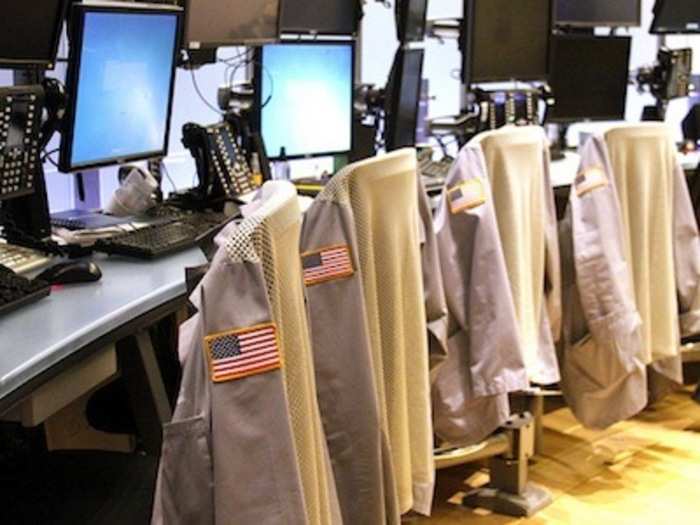
The stock market opens at 9:30 a.m. and the closing bells rings at 4:00 p.m., but a NYSE floor broker begins his or her day much earlier than that.
A floor broker might get in around 7:30 a.m. or 8:00 a.m, our source said.
At this time, a floor broker will typically read newspapers, go over the news-wires, check their Bloomberg terminal and perhaps emails stories/links to their customers.
Then the orders and 'look' requests start coming in.
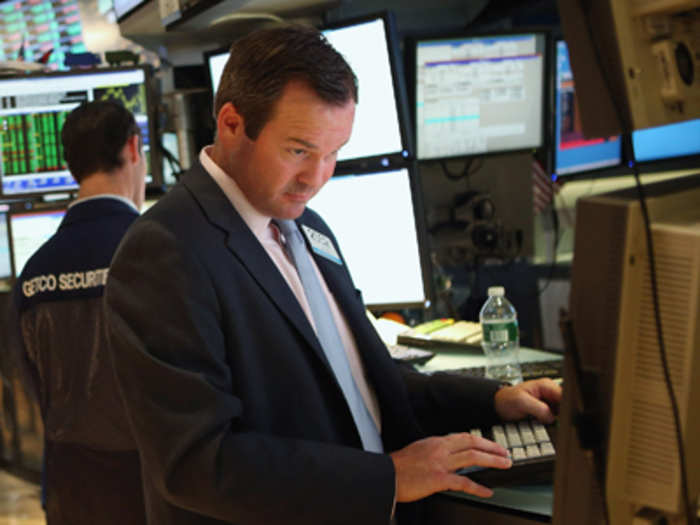
At about 9:00 a.m. a floor broker starts getting orders and "look" requests.
When someone asks for a "look" near the open or close of the market, it means finding out a price for the open/close and/or what the buy/sell imbalance is.
If someone asks for a "look" in the middle of the day, that means finding out some color on the stock such as who's been buying, who's been selling, any rumors or news that's out.
A floor broker would ask a specialist to find this information out.
Right around the opening bell it's 'complete mayhem.'
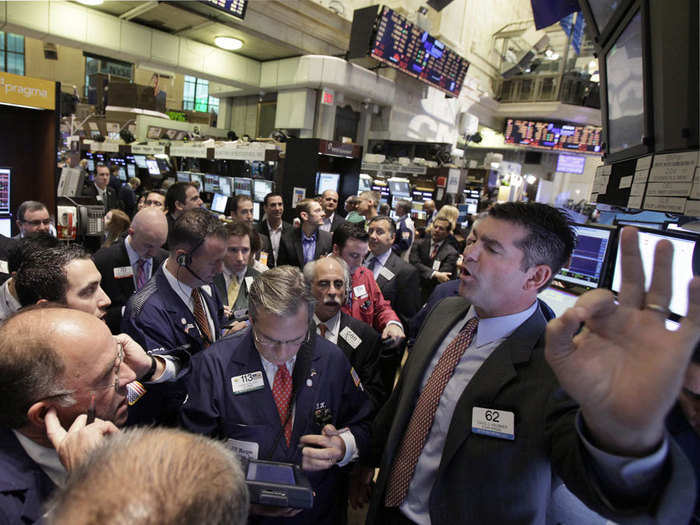
The market opens at 9:30 a.m.
From 9:15 a.m. to 9:45 a.m. it's "complete mayhem" like it has been for years.
Then things start to settle down and the computers and algos do most of the trading.
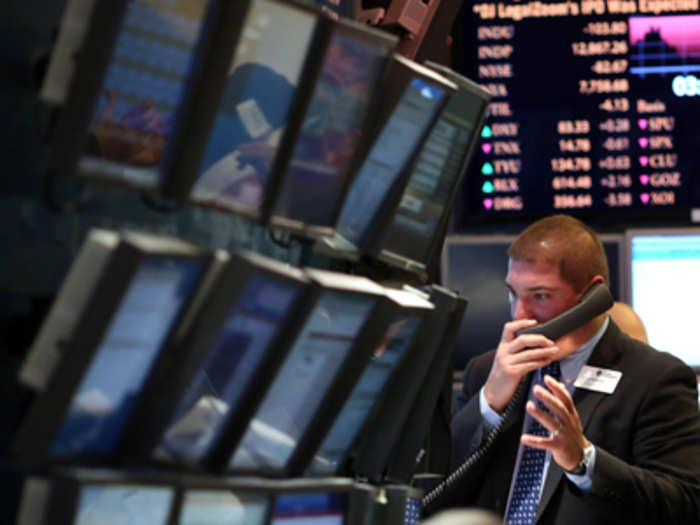
Then around 9:45 a.m. to 10:00 a.m. everything begins to settle down and algos and computer programs do most of the trading.
"We have all the algos and systems they do upstairs plus some. Also we have face-to face contact when trying to find the other side or complete a trade."
Then it's time for lunch. The floor brokers typically eat at their booths.
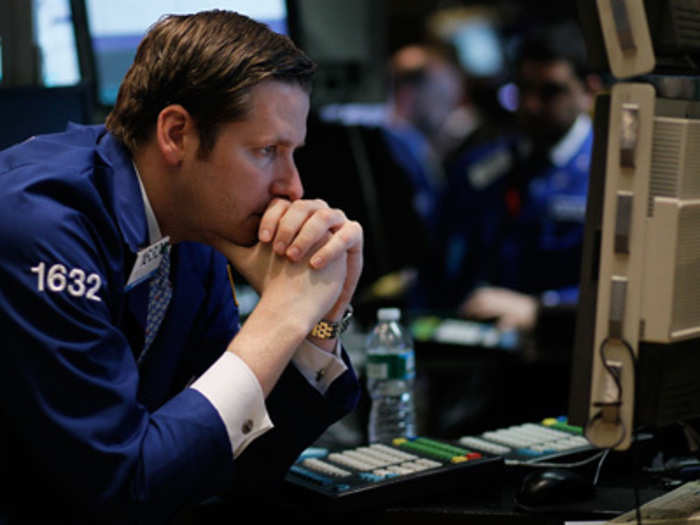
"We each lunch while we work. It's too busy to leave," the floor broker said.
Around 3:30 p.m. things start to really pick up again.
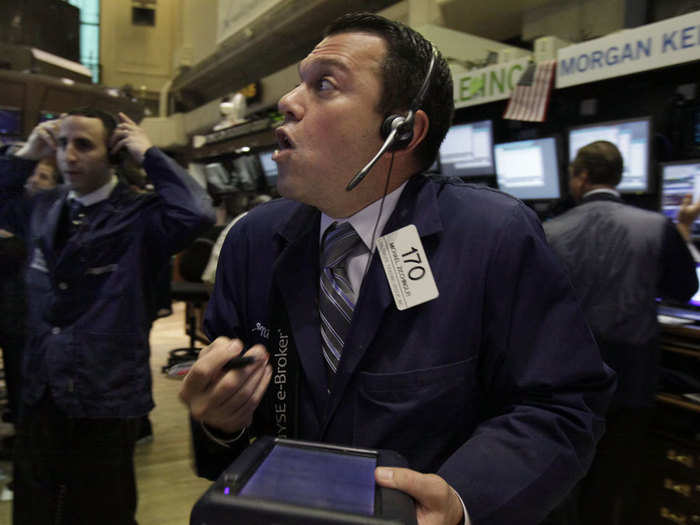
Things start to get crazy around 3:30 p.m. with customers wanting to know what price the stock is going to close and how much volume, the source said.
At 4 p.m. the closing bell rings and fifteen minutes later the trading floor basically empties out.
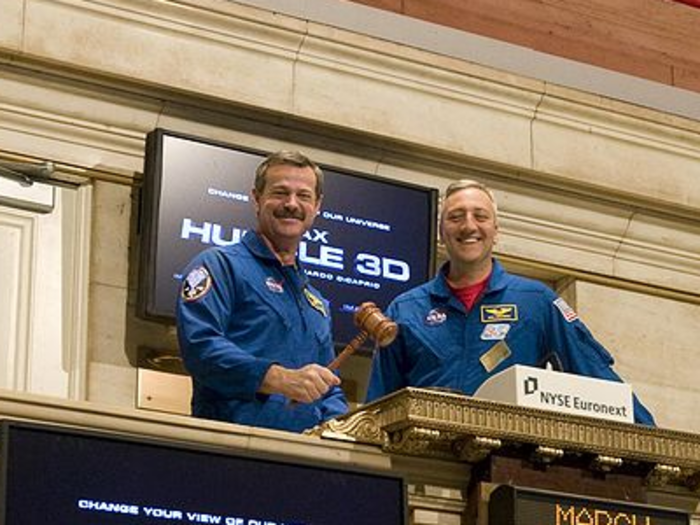
At 4:00 p.m. the closing bell rings. The next ten or fifteen minutes are spent making sure everything closed OK and there are no problems.
At 4:15 the floor brokers head for the door. They're done for the day.
That's what they do, here are some things they don't do. First off, they don't trade mortgage-backed securities on the NYSE floor.
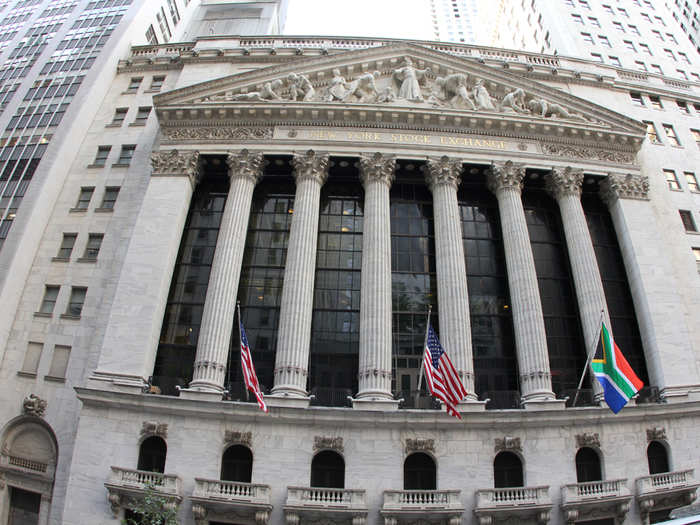
"Most people don't know what we do. The floor of the NYSE is the symbol of Wall Street, so yes, when they show the floor, they relate the financial crisis to the floor. I've said before, 'Hello, we don't trade mortgage backed securities here," our source said.
Another big misconception is that the NYSE floor is 'out of date' and has 'old systems.'
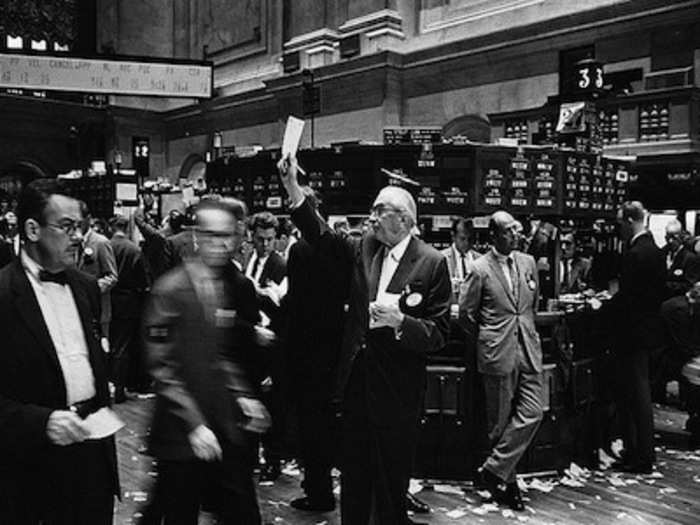
"That could not be further from the truth," our source explained.
"It's not a matter of the floor vs. electronic trading. Almost all the trading we down here is electronic, but with a human touch."
For example, all the brokers have hand-held computers like mini iPads, which are constantly updated with news releases.
They also have access to any and every OMS, algo, or computer program. What's more is some of the algos are only for floor brokers -- ones that take into account parity and the open/close, our source said.
The NYSE floor isn't like the rest of Wall Street (big banks and hedge funds). There are several people on the NYSE floor who didn't even go to college.
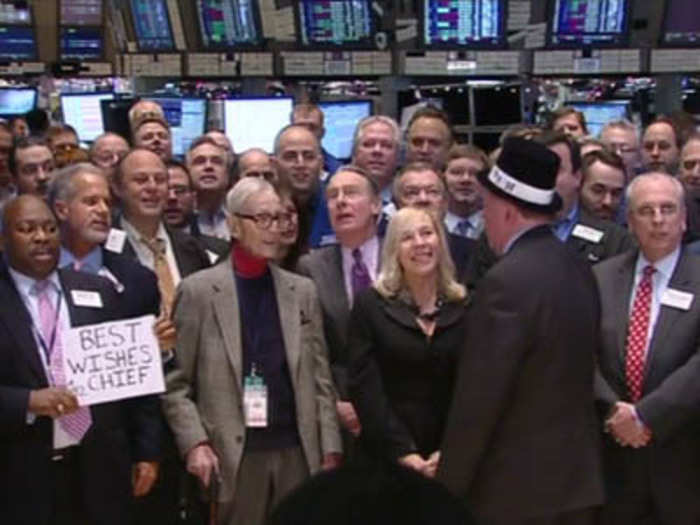
"Unlike other places on Wall Street, the floor has a unique collection of employees," the source said.
"Not like investment bankers where almost everyone come from an Ivy League school, a lot of the guys down here never even went to college, but worked at delis, auction houses and other fast-paced environments."
There's also a good amount of former athletes and army vets on the floor, our source said.
Going to a top college isn't what matters on the floor, it's about having a good work ethic.
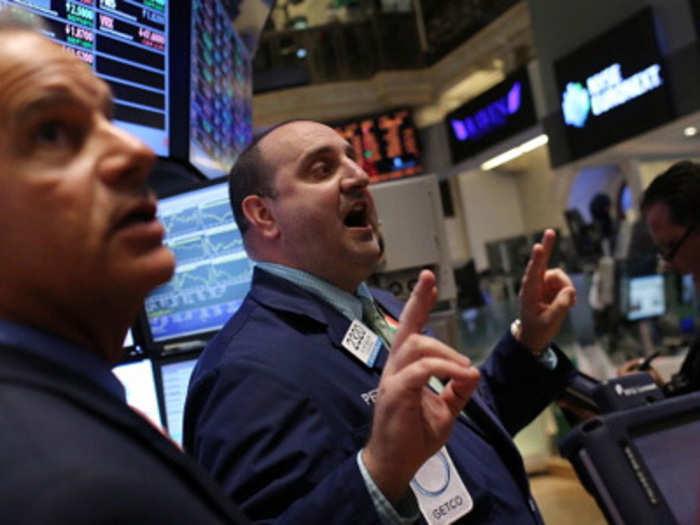
It's important to be able to remember orders and instructions.
It's also very important to have good work ethic.
"We don't care what college you went to, but if you're good with numbers, will be on time and not cry when someone yells at you. Those are more important things than your GPA and college," the source said.
Even though there are fewer people on the floor these days, it's still a 'very fast-paced' environment.
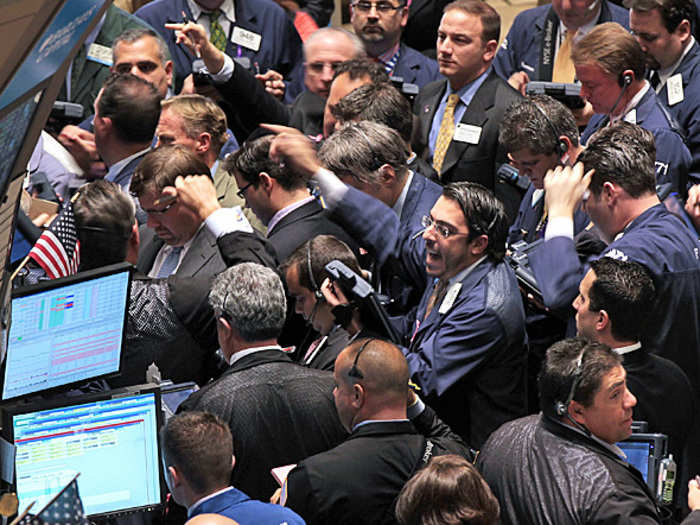
The work environment on the floor is "very fast-paced." However, it's not like it was five or ten years ago.
These days there's more IM chatting than talking on the phone and more computers down here trading that human yelling and screaming, our source explained.
The people on the floor talk about having a sense of camaraderie amongst each other.
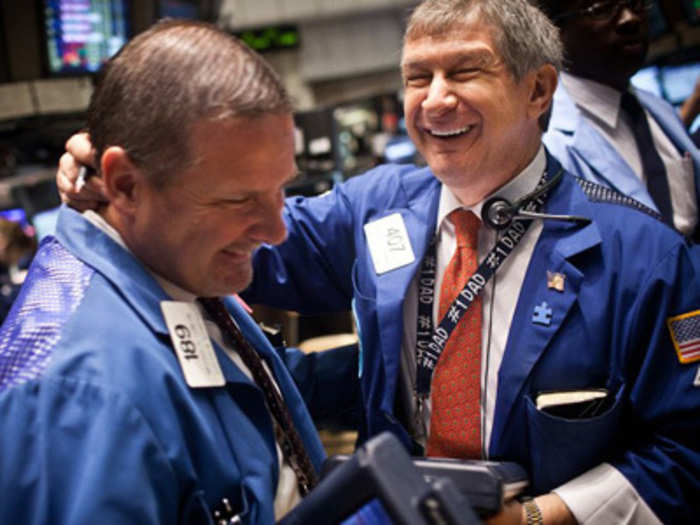
"There's great camaraderie between the guys down here. People always have each others back even though they may have fought that morning. It's kind of like a brother-sister relationship."
Our source added that they do a lot of charity work and "will always help out a fellow floor broker's sick kid or parents."
If you want a job on the floor, you typically have to know somebody.
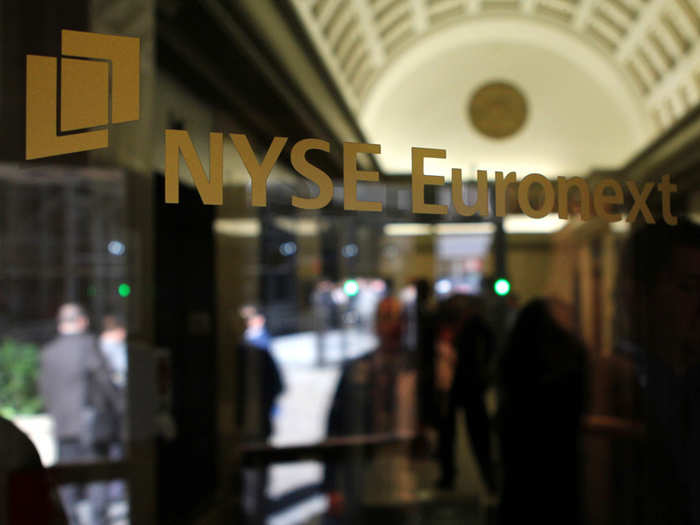
Getting to be a floor broker can be "tough."
"These jobs are not posted on Monster.com. You have to know somebody to get down here."
Now let's see where you can meet a Wall Streeter...
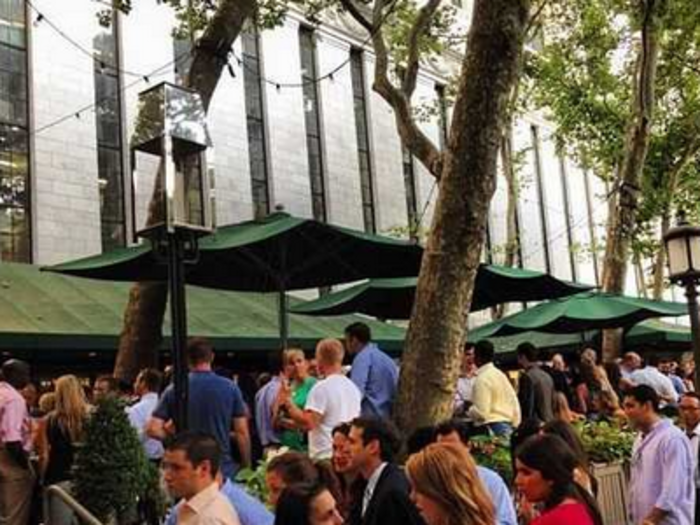
Popular Right Now
Popular Keywords
Advertisement